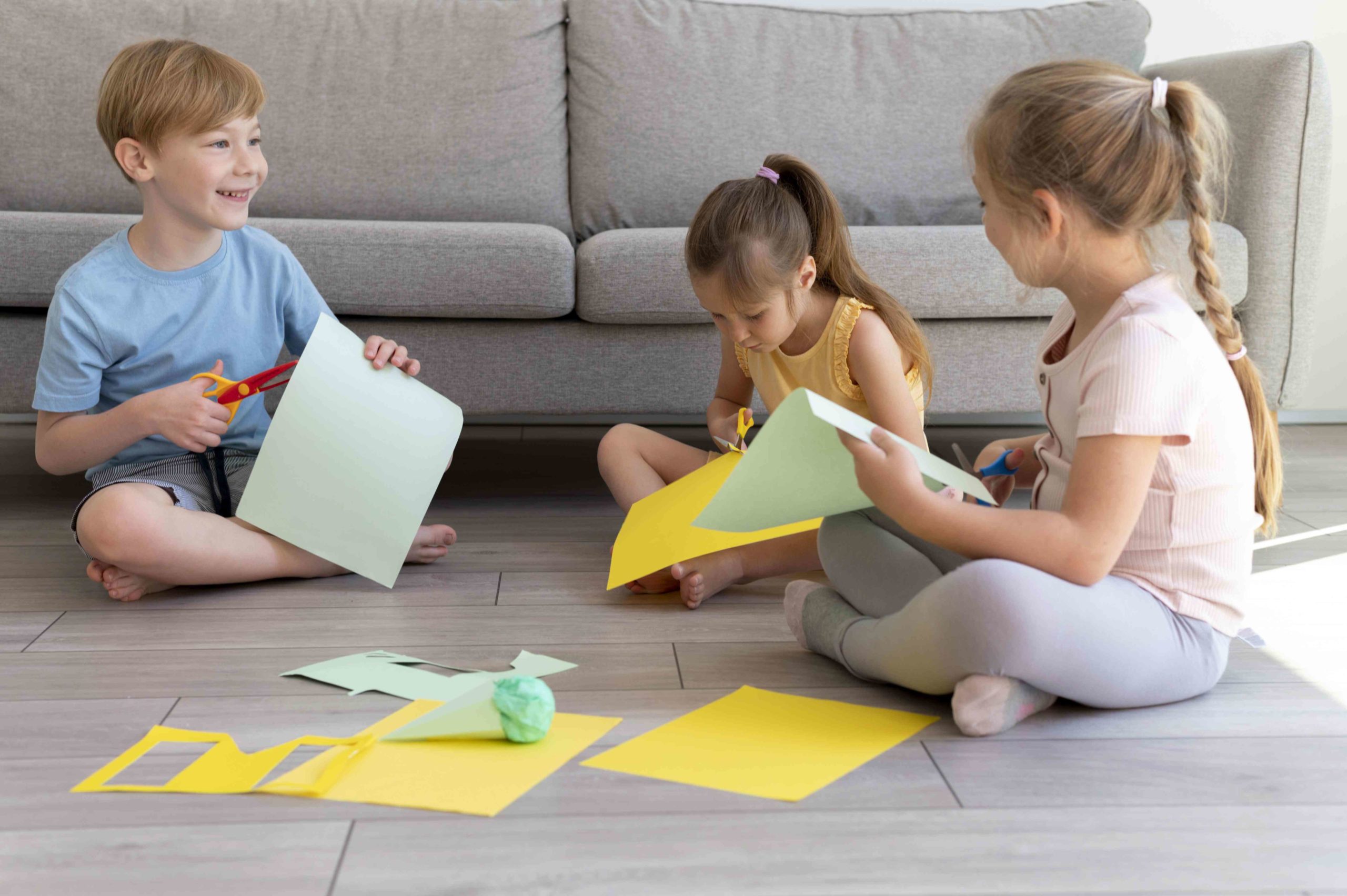Keep it Fun: The Benefits of Learning Through Play
At first glance, play and learning may seem like opposites. One evokes images of fun, laughter, and freedom, while the other brings to mind discipline, effort, and rules. However, a growing body of research suggests that play is not just a frivolous activity but a powerful medium for learning. Integrating play into education can have profound impacts on cognitive, social, and emotional development. In this blog, we will explore the numerous benefits of learning through play.
A Glimpse at the Past
The cognitive benefits of learning through play have long been recognized by scientists and educators. A pivotal moment in this understanding occurred in 1964 when Marion Diamond and her team delved into brain development and function in rats. These neuroscientists embarked on a groundbreaking experiment, segregating a group of rats into two distinct environments—one characterized by dull, solitary confinement and the other by vibrant, toy-filled colonies.
Upon scrutinizing the rats’ brains, the researchers unveiled a fascinating revelation. The “enriched” rats exhibited notably thicker cerebral cortices compared to their “impoverished” counterparts. Subsequent research further substantiated these findings, affirming that rats raised in stimulating, toy-filled environments possessed larger brains, greater intelligence, and an enhanced ability to navigate mazes with exceptional speed.
Since then, Martha Farah, the director of the Center for Neuroscience and Society at the University of Pennsylvania, has uncovered that “an environment rich in books and educational toys during early child development can leave lasting imprints on an individual’s brain, extending well into their late teenage years.” Over years of research, scientists have consistently affirmed that “increased mental stimulation around the age of four corresponds to enhanced child development in the regions of the brain dedicated to language and cognition over the ensuing decades.”
Benefits of Learning Through Play
Play Encourages Communication: Engaging in play provides children with valuable chances to enhance their speech, language, and listening abilities. As children immerse themselves in play, they naturally engage in conversation. Whether they are engrossed in solitary play, which encourages self-talk and narration (such as saying, “My car is climbing the hill”), or playing with a friend, children use communication to infuse meaning into their playtime. As a parent or caregiver, you can actively participate in your child’s play, contributing to the dialogue (for instance, asking, “Where should we go next?” or pondering, “What do you think will happen next?”).
Play Improves Cognitive Development: Engaging in imaginative play can significantly enhance a child’s capacity for meaningful interactions. Research by Doris Bergen at the University of Miami strongly supports the link between cognitive development and high-quality pretend play. Furthermore, her study underscores that a lack of play opportunities can impede a child’s problem-solving abilities, hinder the development of essential social skills, and affect academic achievement in areas like math, science, and literacy.
Further investigations into the advantages of learning through play reveal that:
- Children who engage in play with their parents exhibit heightened levels of creativity and cognitive prowess compared to those whose parents do not actively participate in play.
- Children who enjoy playful interactions with their parents tend to experience improved mental well-being, forge stronger friendships, and foster a deeper sense of family connection, in contrast to those whose parents do not engage in play.
- Children whose parents engage in play with them tend to form stronger attachments to their moms and generally experience more positive child development outcomes compared to children whose mothers do not regularly participate in playtime activities.
Play Encourages Relationship Building: Social skills constitute a pivotal facet of language growth, and play acts as a catalyst for nurturing these essential abilities. When children engage in play with both their parents and peers, they embark on a journey of understanding how relationships function, guided by their playtime interactions. These early relationships serve as the bedrock upon which future adult interactions are built, laying the groundwork for a lifetime of meaningful social engagement.
Family Fun: By seamlessly incorporating play into your daily routine, you have the opportunity to transform it into a family-wide activity. Whether you’re constructing imaginative structures with Legos or blocks, embarking on thrilling adventures within the pages of a captivating book, or engaging in educational games, involve the entire family. This not only cultivates a lively and constructive learning atmosphere but also provides precious moments for family togetherness.
It’s never too soon to start!
Early childhood represents the most dynamic phase of human development, offering a prime opportunity to ignite a child’s boundless potential. While each child follows a unique developmental trajectory, they all progress through discernible stages of cognitive, physical, and emotional maturation.
Martha Farah, director of the center for neuroscience and society at the University of Pennsylvania, found that “an early childhood surrounded by books and educational toys will leave positive fingerprints on a person’s brain well into their late teens.” Throughout the years, scientists have found that “the more mental stimulation a child gets around the age of four, the more developed the parts of their brains dedicated to language and cognition will be in the decades ahead.”
Children should be stimulated and encouraged to think productively while simultaneously developing their communication and relationship skills. By incorporating fun, creative and stimulating activities into your child development, learning will take place in such a manner that your child may not even feel like they are learning at all! It just appears to be fun and has become the greatest advantages of learning through play!
Contact the educational professionals at the Brain Workshop to learn more about brain training for kids and how you can stimulate your child’s brain while developing their capacity to learn and grow.







